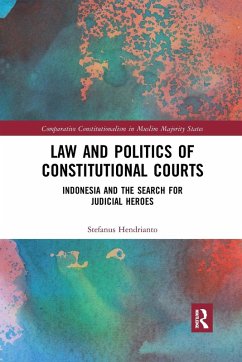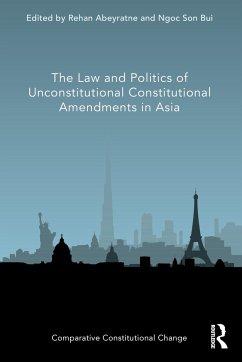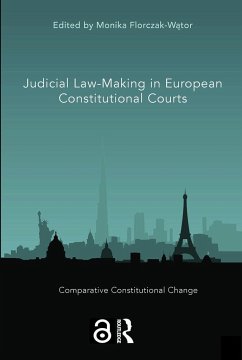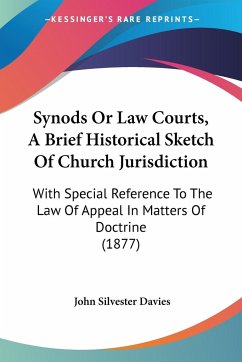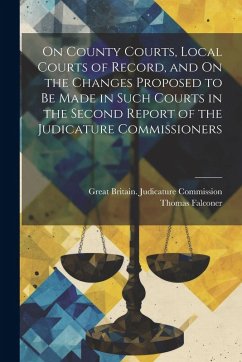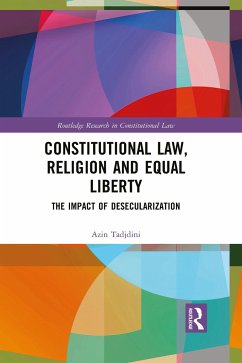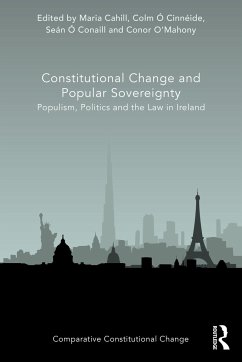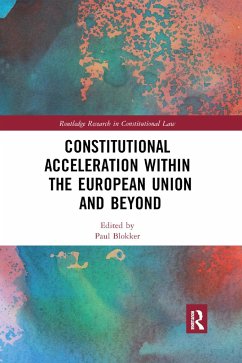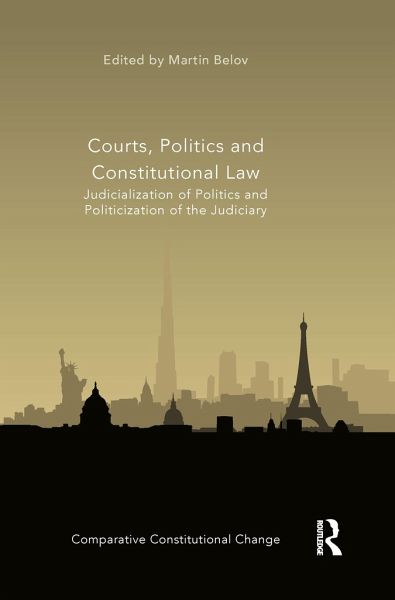
Courts, Politics and Constitutional Law
Judicialization of Politics and Politicization of the Judiciary
Herausgeber: Belov, Martin

PAYBACK Punkte
28 °P sammeln!
This book examines how the judicialization of politics, and the politicization of courts, affect representative democracy, rule of law, and separation of powers. This volume critically assesses the phenomena of judicialization of politics and politicization of the judiciary. It explores the rising impact of courts on key constitutional principles, such as democracy and separation of powers, which is paralleled by increasing criticism of this influence from both liberal and illiberal perspectives. The book also addresses the challenges to rule of law as a principle, preconditioned on independen...
This book examines how the judicialization of politics, and the politicization of courts, affect representative democracy, rule of law, and separation of powers. This volume critically assesses the phenomena of judicialization of politics and politicization of the judiciary. It explores the rising impact of courts on key constitutional principles, such as democracy and separation of powers, which is paralleled by increasing criticism of this influence from both liberal and illiberal perspectives. The book also addresses the challenges to rule of law as a principle, preconditioned on independent and powerful courts, which are triggered by both democratic backsliding and the mushrooming of populist constitutionalism and illiberal constitutional regimes. Presenting a wide range of case studies, the book will be a valuable resource for students and academics in constitutional law and political science seeking to understand the increasingly complex relationships between the judiciary, executive and legislature.






